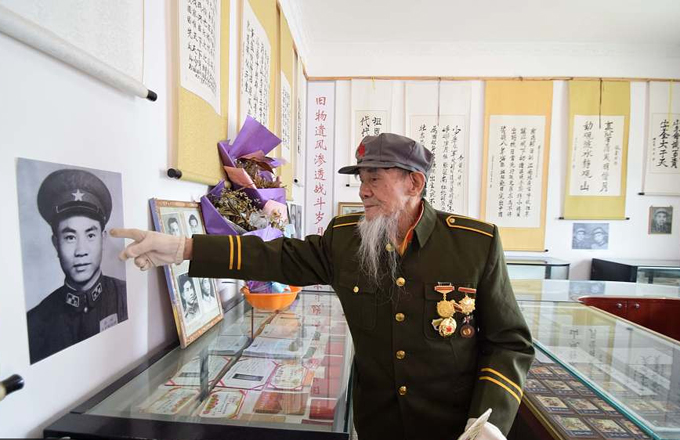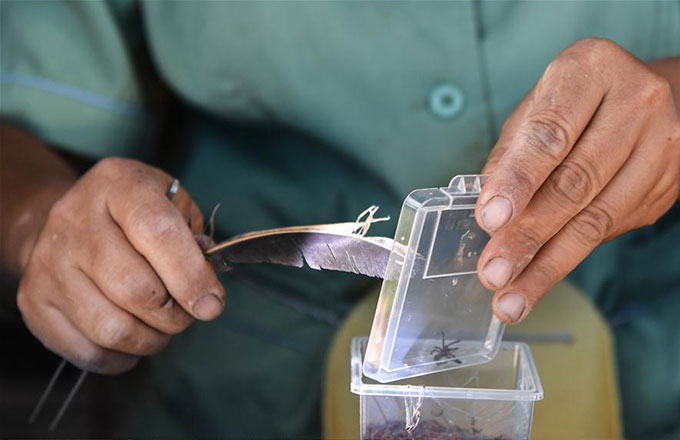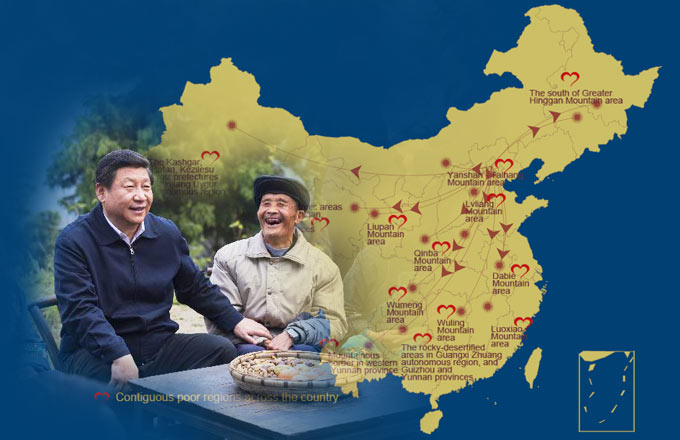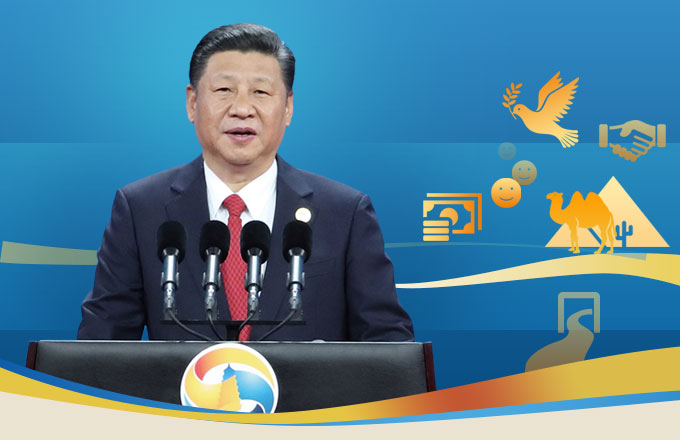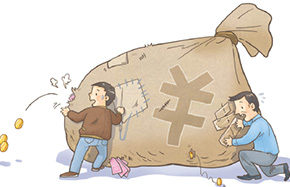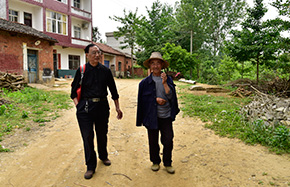Ethnic villagers' fortunes rise as they cooperate in kiwi cultivation
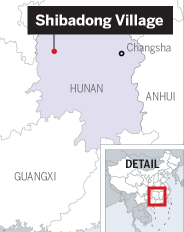
Tourism boost
After Xi's visit, the village has become a popular spot for sightseers, and village heads say there are plans to make tourism a pivotal part of the local economy, tapping the potential of its ethnic flavor, traditional buildings, ecological environment, and the karst caves for which the village is named. Literally translated, the name Shibadong means "18 caves".
Tourism growth has brought benefits to villagers. Many rural restaurants have been started, and villagers can sell agricultural products at home at good prices.
Shi's interaction with Xi has made her popular, too, and many tourists will drop by to take pictures with her.
"I feel honored. Nobody knew me before. My life has changed now," said Shi, who sells smoked meat to tourists.
In 2014, Shi was invited by a company to introduce Miao ethnic embroidery and smoked pork, a local delicacy, to Beijing.
"I never dreamed I could visit Beijing. I realized China is so big only after I went there. The trip opened my eyes," she recalled.
She has stopped farming as she has grown older. The village committee provides her with about 550 yuan ($80) a month as allowance for an adequate standard of living.
The local government has been trying hard to explore new methods to eliminate poverty in areas like Shibadong. In 2015, the poverty work team in the village persuaded villagers to pool the relief funds provided by the government-about 6,000 yuan per person-and some of their own money to form partnership with an agricultural company to start a kiwi plantation.
Without enough farmland in the village, they creatively transferred land and rented about 67 hectares from a nearby village. The kiwi trees will start bearing fruit this year. The plantation is expected to eventually bring in nearly 10,000 yuan annually for each villager. Some villagers work as employees.
With the guidance of the work team, seven cooperatives have been formed, focusing on such things as Miao ethnic embroidery and pig farming. These have also increased the incomes of villagers.
Looking ahead
According to Shi Denggao, the village Party chief, thanks to the poverty-relief efforts, the average annual income per person in Shibadong increased from 1,668 yuan in 2013 to more than 8,300 last year.
All the villagers have been lifted above the poverty line set by the province, which was around 3,000 yuan.
Last year, the village had a combined income of 75,000 yuan.
He said the villagers' mindsets have turned positive. They are more motivated after seeing the obvious results.
"It's impossible to go too far on our way of precise poverty alleviation without the villagers' involvement," he said.
Shi said the village's short-term goal is to consolidate their results and further enhance villagers' lives through long-term beneficial industries, including tourism.
The village has been working with a tourism company to develop some of the karst caves and plans to further enhance the infrastructure, including building a tourist service center and a new parking lot.
"When the caves are developed, tourists will have a better time here, and our lives will be further enhanced, too," said villager Shi Basan, adding that she is happy with the way things stand now.






